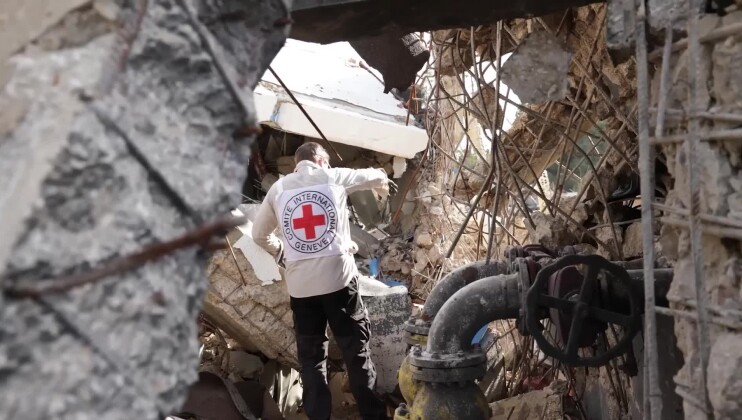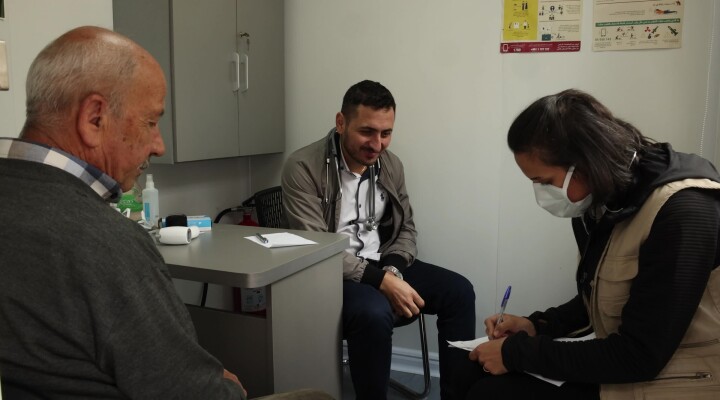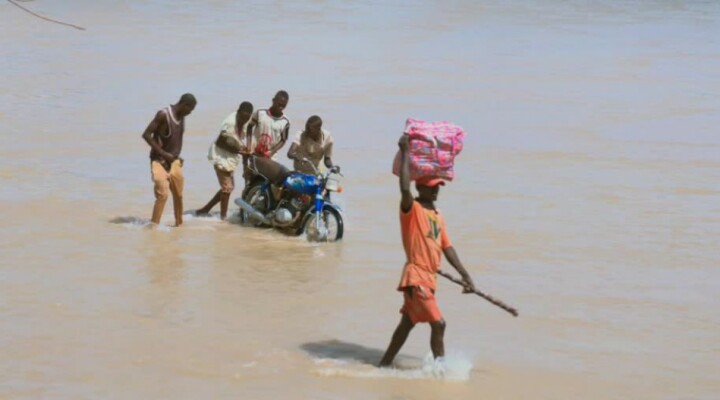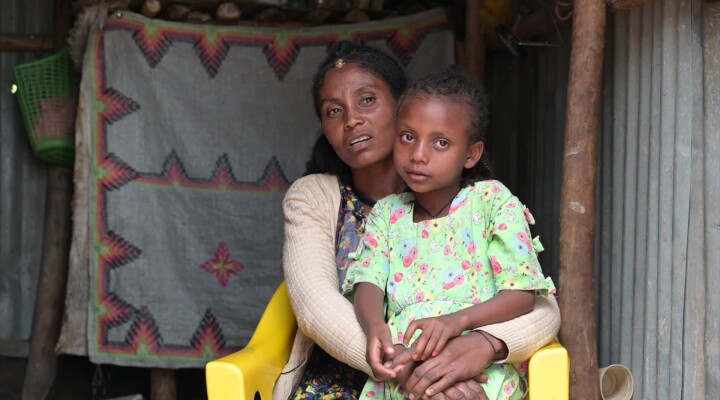Russia-Ukraine international armed conflict: 23,000 people still reported missing
The International Committee of the Red Cross (ICRC) is seeking to clarify the fate of 23,000 persons whose families have no news, either because they have been captured, killed, or because they lost contact after fleeing their homes. The pain of family separation comes on top of indescribable loss, suffering and rising humanitarian needs two years after the escalation of the armed conflict, including for millions of people displaced, both within and beyond the borders of the two countries.
“Not knowing what happened to a loved one is excruciating, and this is the tragic reality for tens of thousands of families who live in a state of constant anguish. Families have the right to know what happened to their relatives, and, when possible, to exchange news with them,” said Dusan Vujasanin, the head of the ICRC’s Central Tracing Agency Bureau (CTA-B) for the international armed conflict between the Russian Federation and Ukraine.
By the end of January 2024, the ICRC, in collaboration with Red Cross and Red Crescent national societies in Ukraine, Russia and elsewhere, had helped 8,000 families receive information on the fate or whereabouts of their missing loved one. Over the last two years, the ICRC has received more than 115,000 phone calls, online requests, letters or in-person visits from families from both Russia and Ukraine looking for their missing relatives.
“We’ve helped thousands of separated relatives communicate with or learn more about a loved one, but so many remain without news. We’re working every day to help more families,” Mr Vujasanin said.
Established in March 2022, the CTA-B works with the parties to the conflict to prevent disappearances and support families searching for their relatives on both sides of the frontline.
In accordance with the Geneva Conventions, both Russia and Ukraine authorities have set up National Information Bureaus (NIBs) in charge of collecting, centralizing and transmitting information on protected persons (such as prisoners of war or civilian internees) in their hands.
Acting as a neutral intermediary between Russia and Ukraine, the CTA-B collects, centralizes, safeguards, and transmits, from one side to the other, this information. The Geneva Conventions foresee that the parties inform the ICRC of all protected persons in their hands, a step that greatly reduces the likelihood of their disappearance.
"Finding a positive match between the tracing requests from families and information received from the NIBs means the end of long months of uncertainty of not knowing the fate of a loved one,” said Mr Vujasanin.
The ICRC works in close collaboration with Red Cross and Red Crescent Movement partners in around 50 countries to be able to bring answers to families, on top of providing support and assistance to thousands of families and dozens of family associations setup by relatives of missing or prisoners of war. It also assists the parties to the international armed conflict in fulfilling their legal obligations related to the recovery, identification, transfer, and repatriation of human remains – including by playing a neutral intermediary role when needed.
International humanitarian law upholds the right of families to know the fate and whereabouts of their missing relatives. Each party to an international armed conflict has the obligation to prevent people from going missing and to ensure that their relatives are informed about their fate and that people they hold and the dead are treated humanely and in a dignified manner.
For more information, please contact:
Achille Després, ICRC Kyiv (English, French, Italian) +380 50 324 31 80, adepres@icrc.org
Oleksandr Vlasenko, ICRC Kyiv (Ukrainian, Russian, English) +380 95 262 80 23, ovlasenko@icrc.org
SHOTLIST
Length: 2:57
Location: Ukraine
Date Of Filming: 22.01.2024
Camera: Anna Bilous / Stephanie Xu
Producer: Francisco Pavon/Anna Bilous
Editor: Anna Bilous
Copyright: ICRC access all
On Screen Credit: ICRC written or logo
|
00:00-00:04 |
ICRC community contact center (CCC) operators in Kyiv answer phone calls from people searching for information. |
|
00:05-00:09 |
A CCC operator talking on the phone in Ukrainian “Can you say it again, the connection is too bad?...” |
|
00:14-00:19 |
“Yes, Yes.” |
|
00:19-00:24 |
“When did the operator call you?” |
|
00:24-00:32 |
ICRC community contact centre operator answering a call in Ukrainian: "International Committee of the Red Cross, my name is Pavlo, how can I help you?” |
|
00:32-00:36 |
ICRC community contact centre operator takes notes on a computer. |
|
00:36-00:39 |
The mother of a missing son during sensitization sessions with families answering a question of a forensic officer: “Father, mother and brother”. |
|
00:39-00:42 |
A woman talks to an ICRC staff member during sensitization sessions with families of the missing. |
|
00:42-00:46 |
An ICRC staff member during sensitization sessions with families: “We open a case at your request and close it with your consent”. |
|
00:46-00:49 |
An ICRC staff member during sensitization sessions with families: “we have only been allowed once to deliver water there.” |
|
00:49-00:52 |
Sensitization sessions with families of the missing. |
|
00:52-01:05 |
Images of sensitization sessions with families of the missing. The voice of an ICRC staff member in the background: “you are strong, we are proud of you”. |
|
01:05-01:01 |
Images of a couples of woman crying during sensitization sessions with families. |
|
01:01-01:05 |
Sensitization sessions with families of the missing. Wide shot. |
|
01:05-01:11 |
Images of women crying during sensitization sessions with families. |
|
01:11-01:15 |
An elderly man during sensitization sessions with families. |
|
01:15-01:18 |
An ICRC staff member listens to people during sensitization sessions with families. |
|
01:18-01:27 |
A woman is crying during sensitization sessions with families. |
|
01:27-01:29 |
A woman raised her hand to ask a question during the family associations workshop. |
|
01:29-01:31 |
The hands of one of the women during the family associations workshop. |
|
01:31-01:35 |
Juerg Eglin, Head of Delegation of the ICRC in Ukraine, answered the questions from family during the family associations workshop: “Help to alleviate some of your pain and some of your suffering.” |
|
01:36-01:39 |
Juerg Eglin answering the questions from families during the family associations workshop. (Back & wide shot) |
|
01:39-02:20 |
Anna Zakharkina, wife of a missing Ukrainian soldier, speaks to the camera:
“I am the wife of a missing warrior. Contact with my husband was lost in March 2023. We have already been looking for him for seven months. He called me on 20 March, and we even had a video call. We have a small child and he really wanted to see him. I remember how he asked me to tell his mother and grandmother that he loved them very much and would come back home. I talk a lot to people whose relatives are missing. I tell them all almost the same thing that they should have faith.” |
|
02:20-02:35 |
Detailed shots and close-up images of Anna Zakharkina |
|
02:36-02:38 |
An ICRC representative shaking hands with the relative of a POW. |
|
02:39-02:46 |
A woman filling up a Red Cross Message for her POW relative. |
|
02:47-02:51 |
A relative holds a letter from his loved one, who is a POW. |
|
02:52-02:57 |
An ICRC representative gives a hug to the relative of a POW after delivering a written message (Red Cross Message). |
Ends



